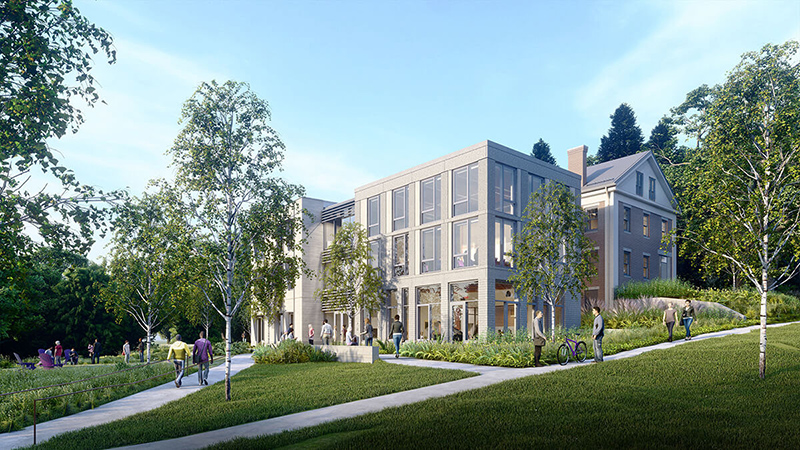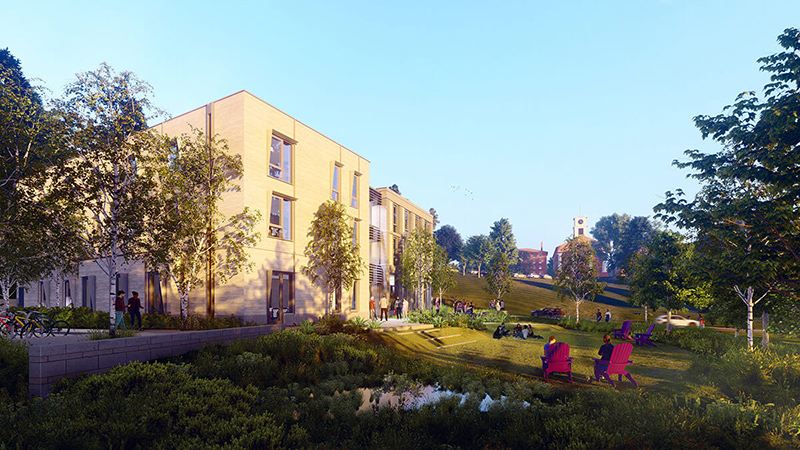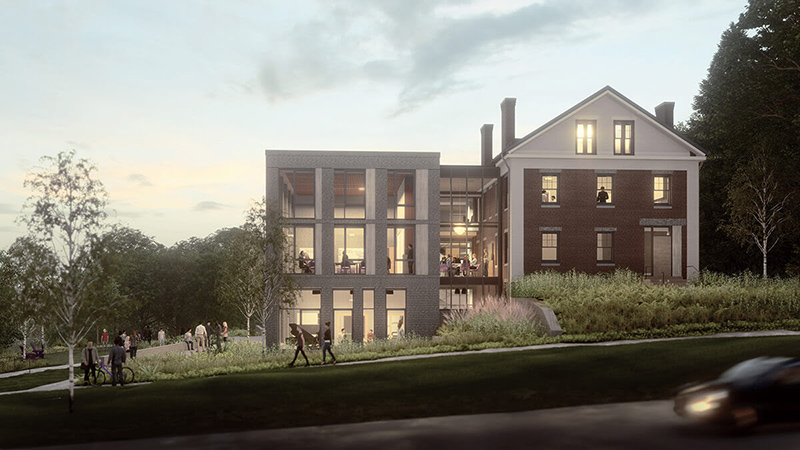
Bruner/Cott designs 20,000 s/f The Aliki Perroti and Seth Frank Lyceum for Amherst College

Amherst, MA Bruner/Cott Architects designs The Aliki Perroti and Seth Frank Lyceum for Amherst College. Conceived to enhance intellectual life at Amherst College, the Aliki Perroti and Seth Frank Lyceum will bring together the college’s Center for Humanistic Inquiry (CHI) and Department of History with other selected faculty members to drive discourse, critical thinking, and exploration of the human condition.
Inspired by the Lyceum of ancient Athens, the revelatory 20,000 s/f project, expected to be completed in fall 2023, will comprise an historically significant Greek Revival house owned by the college as well as a conjoined new building. Their comprehensive interior and exterior spaces are strategically and collectively arranged to encourage interaction, collaboration, and conversation for fellows, faculty, students, and the greater college community.
The historical house will comprise the core of the project, its footprint augmented by an addition that extends to its south and west. Its expanded interior will be modified for a program of offices, classrooms, spaces for informal study, multipurpose rooms, and support spaces. A new two-story addition will be placed next to the house along Pleasant St., separated by a transparent exterior wall. These two structures will contain the larger, more public spaces, an event space, and a flexible classroom. A new three-story office wing within will wrap behind the existing house and create a linear band of offices looking west. The project’s inclusive design intends to leverage the adjacencies of offices, classrooms, a ground floor event space, and an outdoor terrace–all connected by an open central commons–to establish multiple places for the community to share thoughts, ideas, and work.
The Lyceum will be a “smartly sustainable” building, designed to support the college’s commitment to carbon neutrality by 2030 and to showcase low carbon construction. The interior and the exterior materials palettes will prioritize those with lower amounts of embodied carbon as well as products that can store carbon, such as wood and other plant-based materials. Indoor air quality, operable windows, a daylighting strategy, and views to the surrounding campus environment will enhance occupant wellbeing.
The new building’s envelope will be highly insulative and airtight. When coupled with efficient mechanical systems, the new Amherst College Lyceum project will demonstrate how buildings can dramatically reduce their impact from construction through their operational life.